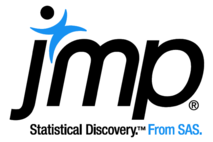QPRC 2016
Process Capability – Practical Challenges to Implementation
Julia O’Neill
Tunnell Consulting
In concept, process capability is a tremendously useful measure of the ability of any process to reliably deliver output that is fit for its intended purpose and provide dimensionless index values that can compare risk of poor output or even failure across widely different processes. In practice, process capability can be distorted by common challenges with specification setting and process control.
Most indices are a ratio of specification range to actual process output. Although there are many variations of the formula, most provide a quantitative basis for comparing reliability and control across processes and attributes. The indices are especially useful for prioritizing improvements across a large portfolio or organization.
However, the process capability measures depend on both specifications and process characterization. Specifications are ideally set based on customer requirements, but often this is not possible. Process characterization may be hindered by common issues such as autocorrelation or rounding of results. Some examples from pharmaceutical manufacturing will be used to illustrate the challenges. Simple solutions will be recommended to overcome these issues.





